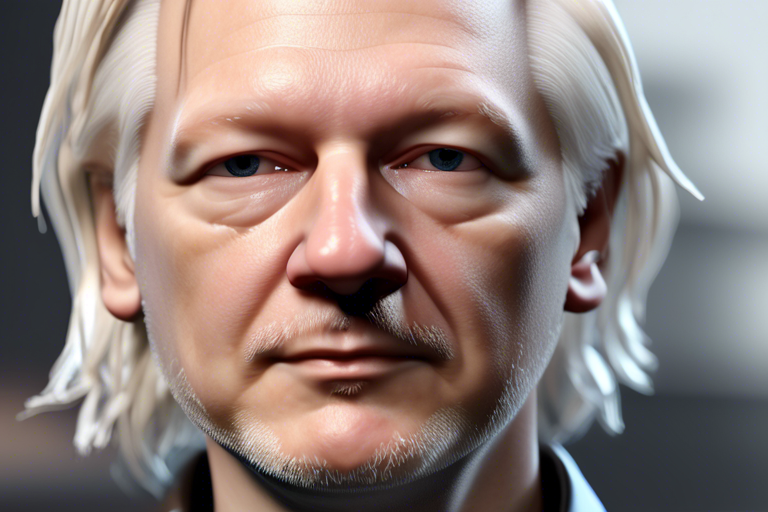Julian Assange’s Legal Battle Comes to a Close
Julian Assange, the founder of WikiLeaks, has finally reached the end of his lengthy legal battle by agreeing to a plea deal, as reported by Bitfinex Blog. This agreement has prevented his extradition to the United States and led to his immediate release from custody.
Exploring the Eventful WikiLeaks Saga
Established in 2006 by Julian Assange, WikiLeaks was created to provide a secure platform for whistleblowers to expose unethical behavior and human rights violations. The organization gained global attention in 2010 after releasing classified U.S. military documents and diplomatic cables, including the notorious “Collateral Murder” video, which depicted a 2007 U.S. helicopter attack in Baghdad.
- The release of classified U.S. military documents and diplomatic cables in 2010
- Significant impact on public opinion regarding U.S. military actions
- Worldwide attention garnered by WikiLeaks
An Unfavorable Turn for Assange and the Beginning of a Witch Hunt
In late 2010, Julian Assange faced intensifying personal challenges when Swedish authorities issued a warrant for his arrest on charges of sexual misconduct. Assange and his supporters argued that these allegations were politically motivated to discredit him and facilitate his extradition to the U.S. Seeking asylum in the Ecuadorian embassy in London in 2012, he remained there for nearly seven years.
- Issuance of a warrant for Assange’s arrest in late 2010
- Political motivations behind the sexual misconduct allegations
- Assange’s asylum in the Ecuadorian embassy in London
Celebrating Assange’s Return: Plea Deal and Release Details
Assange’s agreement to a plea deal represents a significant milestone in his protracted legal battle. By pleading guilty to a charge of conspiracy to unlawfully obtain and disseminate classified national defense information, Assange secured his immediate release as part of a deal with the U.S. Department of Justice. This plea deal recognized the time he had already spent in a British prison.
- Assange’s plea deal and its terms
- Conspiracy charge related to national defense information
- Release from the Belmarsh Prison in the UK
The Aftermath of Assange’s Legal Odyssey
With the resolution of Assange’s legal struggles through the plea deal, a chapter in his decade-long legal battle has concluded. While Assange looks forward to resuming a normal life in Australia, the broader implications of his case, particularly concerning press freedom and whistleblower treatment, continue to reverberate. The delicate balance between revealing state secrets and safeguarding national security remains a critical issue highlighted by Assange’s tumultuous journey.
- End of over a decade of legal battles and controversies
- Significance of Assange’s case for press freedom and whistleblower protection
- Ongoing debate on national security and public interest
Hot Take: Reflecting on the Julian Assange Saga
As you delve into the complex narrative of Julian Assange’s legal saga, it becomes evident that his journey has been a testament to the challenges faced by whistleblowers and advocates of press freedom. The nuances of balancing transparency with national security underscore the enduring relevance of Assange’s case, serving as a poignant reminder of the complexities inherent in navigating the intersection of information disclosure and government accountability in the digital age.





 By
By
 By
By
 By
By
 By
By
 By
By